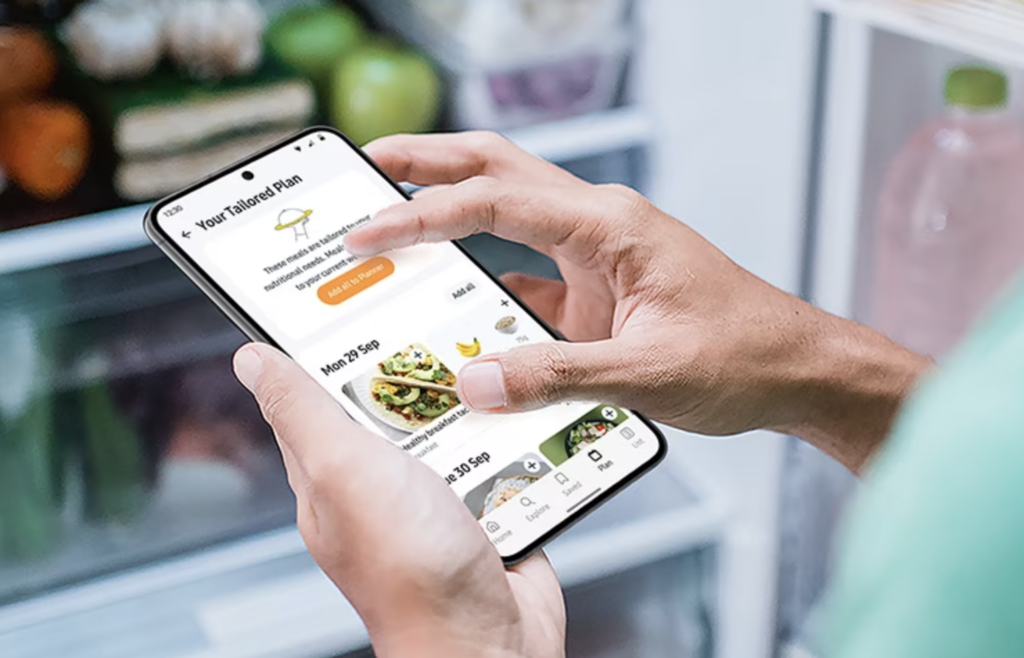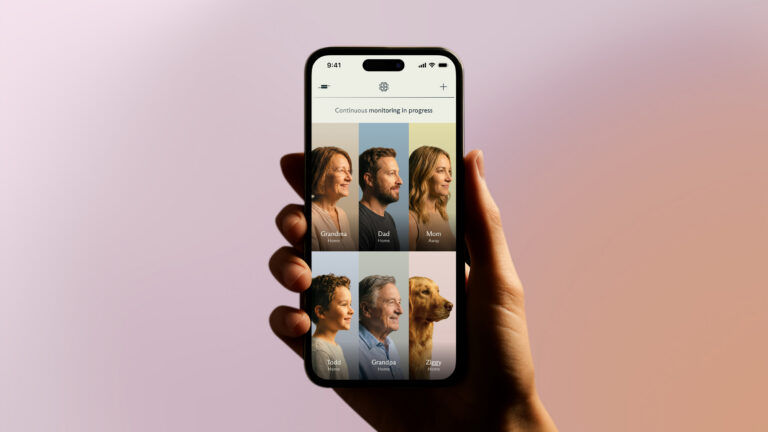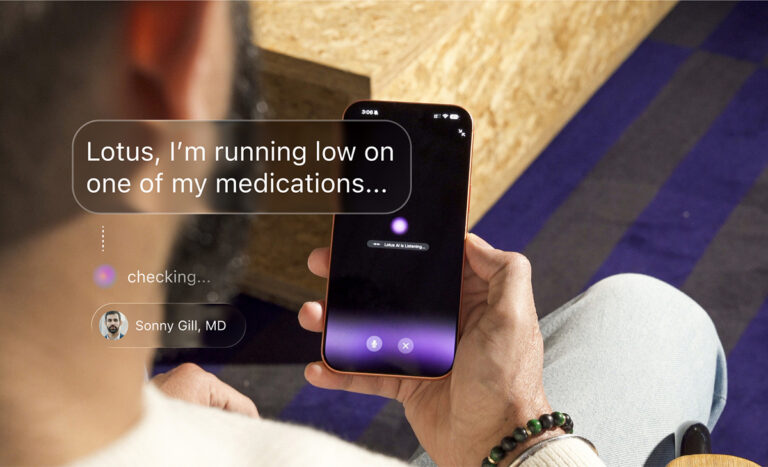Samsung aims to automate personalized nutrition.
What’s happening: The global electronics company announced an AI meal planning app called Samsung Food. Leveraging its 2019 purchase of UK-based recipe app Whisk, the platform recommends recipes based on dietary preferences, nutrition goals, and on-hand ingredients.
Acting as a kitchen assistant, the platform syncs with the brand’s smart appliances, exports grocery lists to local retailers, and enables sharing and discovery.
Between the lines: The app doesn’t dish dietary advice yet, but it’ll integrate with Samsung Health to help users track weight loss later this year — and in 2024, it’ll add Vision AI technology to estimate calorie counts from meal photos.
Why it matters: Keeping pace with Apple and Google, Samsung’s interconnected health ecosystem is answering consumer demand for personalized, preventative wellness.
It spent the past year ramping up its wearable tech, adding sleep, heart rate, and menstrual cycle insights for the Galaxy Watch while reportedly prototyping its own smart ring, but creating a digital dietitian could set it apart from the competition.
Nutrition x AI
Lacking education and inspiration, consumers are increasingly willing to pay for personalized nutrition — prompting a race to make eating right as easy as possible.
- CGM platform January AI launched an predictive AI app translating biometric data into real-time food and lifestyle suggestions.
- Y Combinator-backed SnapCalorie announced $2M for its app that generates nutritional breakdowns from smartphone snapshots.
- Diagnostics platforms Viome and InsideTracker use at-home tests to inform which foods to avoid, minimize, or eat more of.
Another approach, grocery retailer Albertsons added a feature to its free digital health app that allows customers to track the macronutrient makeup of their carts while shopping.
Still, consumers remain hungry for tailored advice, leading many with dietary restrictions to use ChatGPT to DIY meal plans and shopping lists.
Punchline: Smart food curation apps unlock a new level of ease, translating users’ preferences into actionable meal plans, shopping lists, and cooking instructions with a few swipes. But, beyond AI, personalized nutrition should consider how a human touch—via oversight from an RD or health coach—could amplify outcomes.






